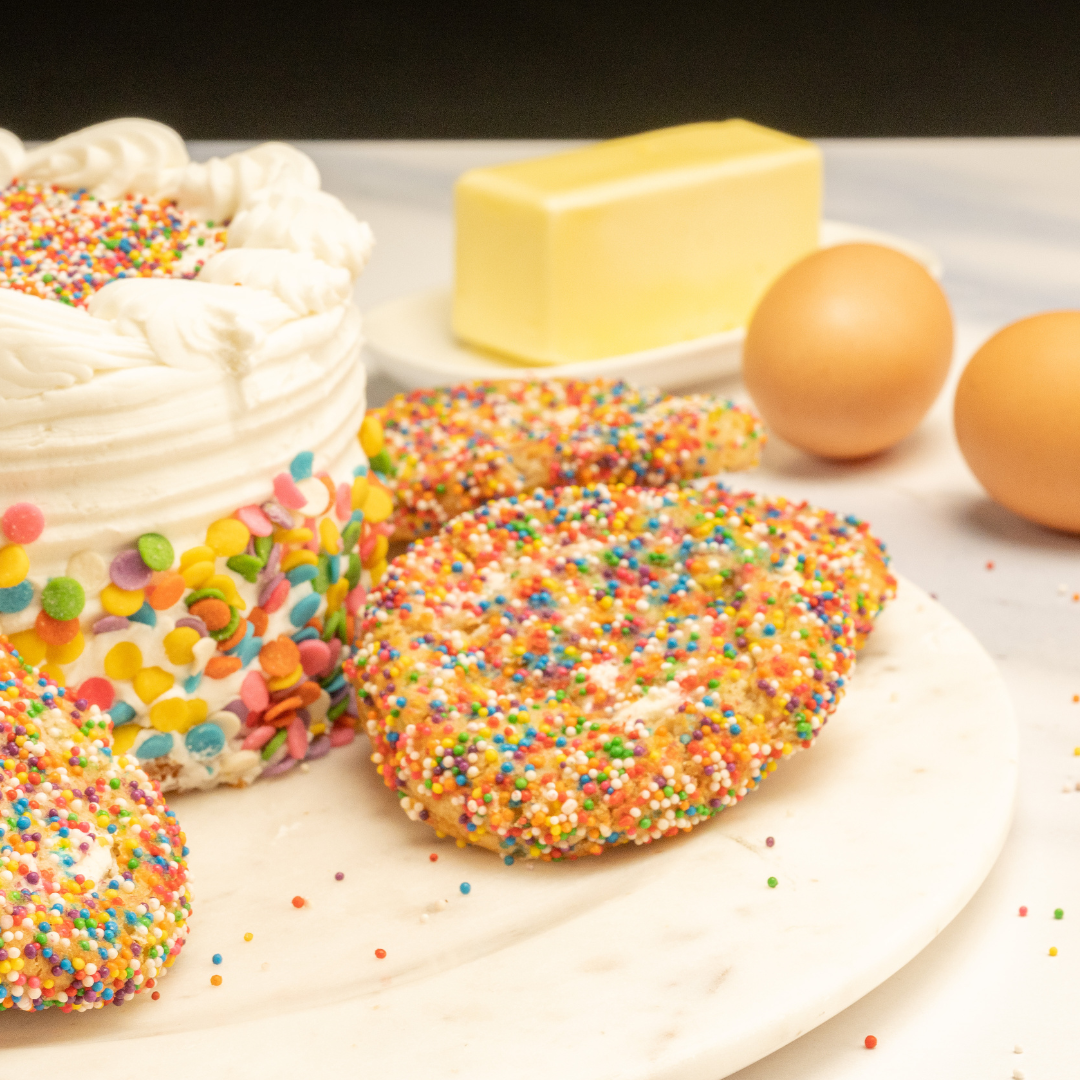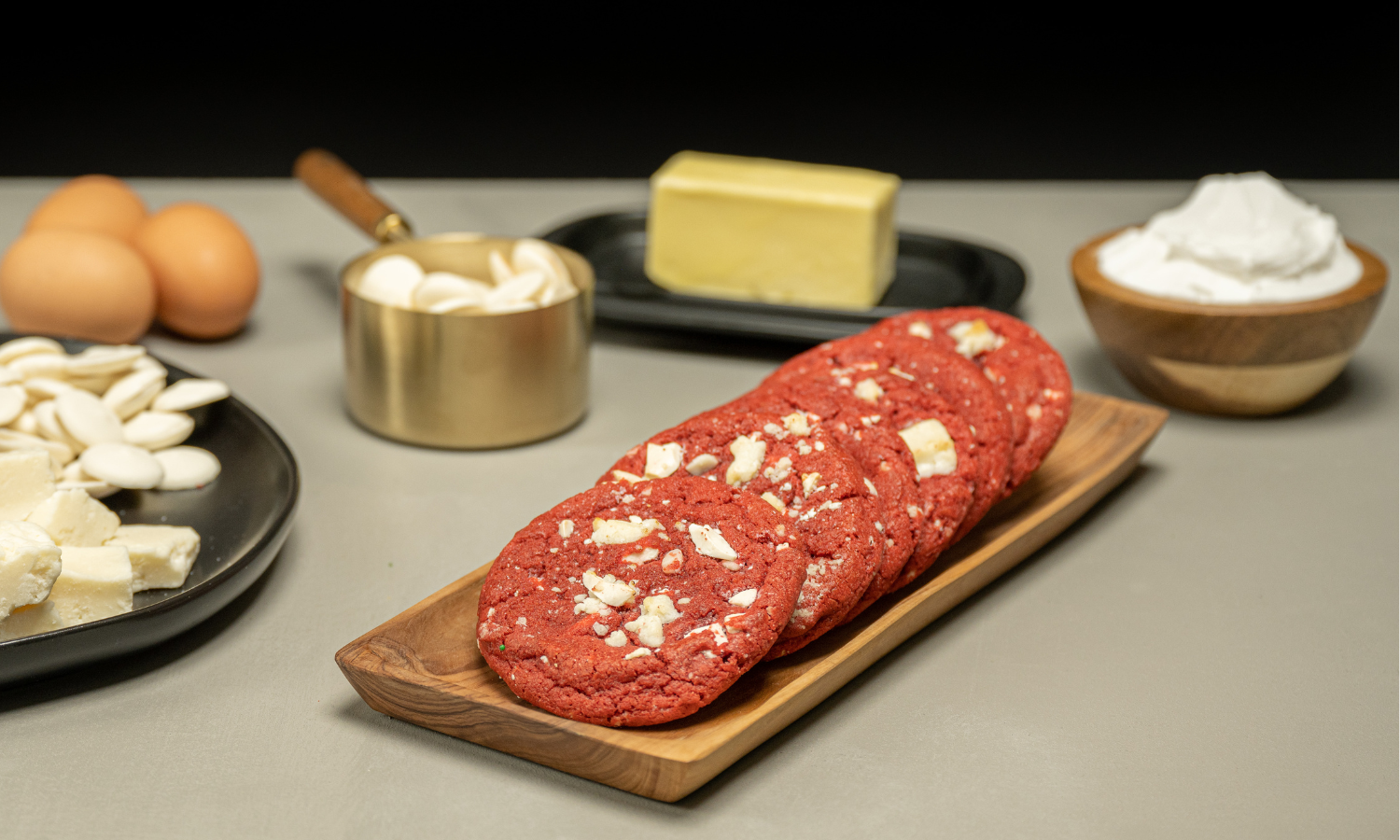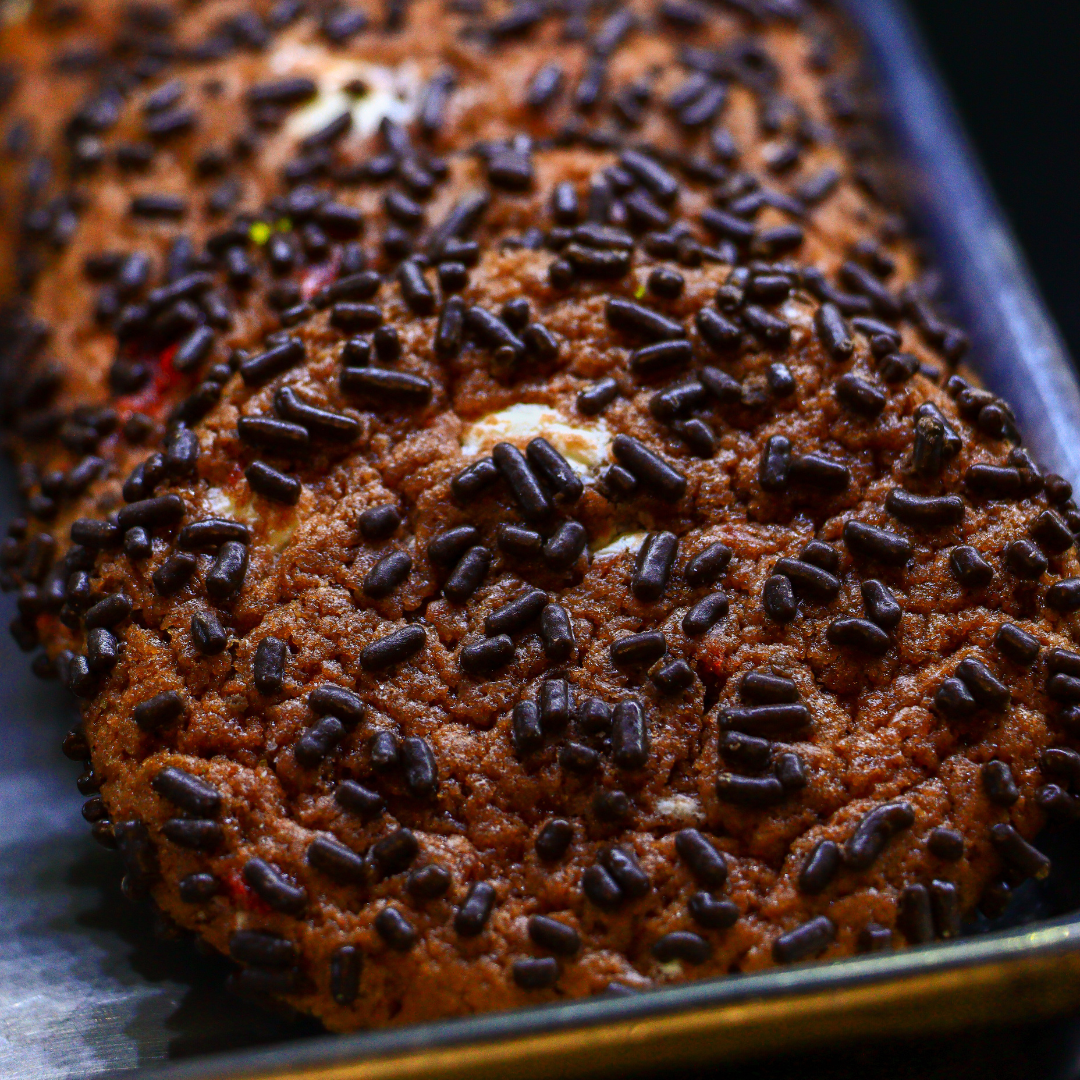Cookies are the sweet treat that brings us back to our childhoods and the days of carefree indulgence. One age-old debate is whether shortening or butter should be used when making cookies – but which one reigns supreme?
Well, there's no simple answer with pros and cons to both options, and that's what we will share in today's article.
Let's explore the butter versus shortening debate, and hopefully, by the end, you'll have a better idea of which one to use when creating cookies for your specific needs.
What is Shortening?
Various fats are commonly used in baking, such as butter, margarine, lard, and vegetable oil. They all have their own unique characteristics that can affect the texture and flavor of your finished product.
Shortening refers to any type of fat that has been solidified through a process called hydrogenation. This means that liquid fats have been treated with hydrogen gas to produce a semi-solid or solid product. The most common type of shortening is vegetable shortening, made from plant oils like soybean or cottonseed. It's flavorless and doesn't add any taste to the cookies.
The Advantages of Shortening
Tenderness And Texture
Shortening is known to give a flaky, melt-in-your-mouth feel while adding lightness to your creations. It has an advantage over butter as its higher melting point ensures it retains its shape better during baking. When you add shortening to your cake or cookie dough, you end up with light, fluffy treats that won’t become dense or crumbly when baked.
Consistency
As any experienced baker knows, achieving consistency is one of the biggest challenges in baking cookies. Different fats can dramatically affect your baked goods' texture, flavor, and appearance. But fear not; shortening is here to save the day. It is a more consistent ingredient than butter, ensuring you get the same results every time you bake with it. So, if you're a perfectionist who wants to ensure that every batch of cookies turns out flawlessly, shortening could be your new best friend.
Long Shelf Life
Who doesn't hate it when their freshly baked cookies start to lose their deliciousness after a few days? Shortening has you covered here, too. You can put an end to this problem with shortening. Since it is a solid fat, it forms a protective layer between the cookie and the air that slows down oxidation, allowing you to savor your delicious treats for longer. With shortening, you won't experience stale or soggy cookies; they'll remain as tasty as the day you first made them.
Disadvantages of Shortening
Lack of Flavor
Let's face it, butter is the star ingredient when it comes to flavor. While shortening can be used as a replacement, it lacks the same depth of flavor and deliciousness that butter provides. So if you're looking for a truly flavorful cookie, we recommend sticking with butter. Plus, butter is also much easier to work with than shortening!
Health Concerns
Shortening is made from hydrogenated vegetable oil which can contain trans fats – meaning they increase your bad cholesterol levels while decreasing your good cholesterol levels. This type of fat has also been linked to an increased risk of cardiovascular problems.
Environmental Considerations
When deciding between shortening and butter in cookies, there is much more than flavor and texture at stake. The environmental cost of each ingredient must be considered as well.
Hydrogenated vegetable oils are derived from crops grown on large agricultural farms meaning these crops require large amounts of water and fertilizer for growth - both of which can have detrimental effects on the environment over time. The use of sustainable agricultural practices paired with organic ingredients makes butter a much better choice when it comes to considering environmental impact.
What is Butter?
This is probably something that doesn't need explaining, but for the sake of clarity, butter is made from churning cream. Butter is also available in salted and unsalted varieties; unsalted is the recommended option when baking, allowing you to control the amount of salt in your recipes.
The Advantages of Butter
Taste and Flavor
As mentioned before, butter has a much richer flavor than shortening, which makes it ideal for adding depth and decadence to cookies. It's also easy to work with because it takes on other flavors like sugar, spices and extracts better than shortening.
Its rich creaminess makes baked goods like cookies and cakes truly unique, a quality that shortening simply can't match.
Ease Of Use
Unlike shortening, which needs to be melted down before use, butter can be directly incorporated into cookie dough without melting or softening. This makes it much easier to work with than shortening, especially for novice bakers.
Healthier Option
Unlike margarine or shortening, real butter contains healthy fats and nutrients like Omega-3 fatty acids and vitamins A, D & E. When used in moderation, real butter can give your favorite recipes an added nutritional boost! Plus, it won't contain any preservatives or artificial flavors found in some processed substitutes.
Disadvantages of Using Butter
Shelf Life
Cookies made with butter can spoil more quickly than those made with shortening. If you want your cookies to last as long as possible (and who doesn't?), you should opt for Shortening. Still, if you store your butter-based cookies in an airtight container, you can keep them fresher for longer.
Cost
Using real butter can be expensive compared to shortening. Still, if you want superior flavor in your cookies, the extra cost is worth it.
Inconsistent Results
Butter tends to melt faster than other fats when exposed to heat, which can cause problems in certain recipes where precise measurements are key. For example, if your cookie dough is too soft because it contains too much-melted butter, then your cookies might spread too thin or take on an unappetizing texture when baked. For more experienced bakers, this isn't a problem as they can adjust their recipes accordingly.
Final Thoughts
Ultimately, the choice between butter and shortening in cookies comes down to personal preference. While both yield delicious results if used correctly, butter has a slight edge regarding flavor and health benefits. On the fence? Experiment with both ingredients and see which one works best for you.








